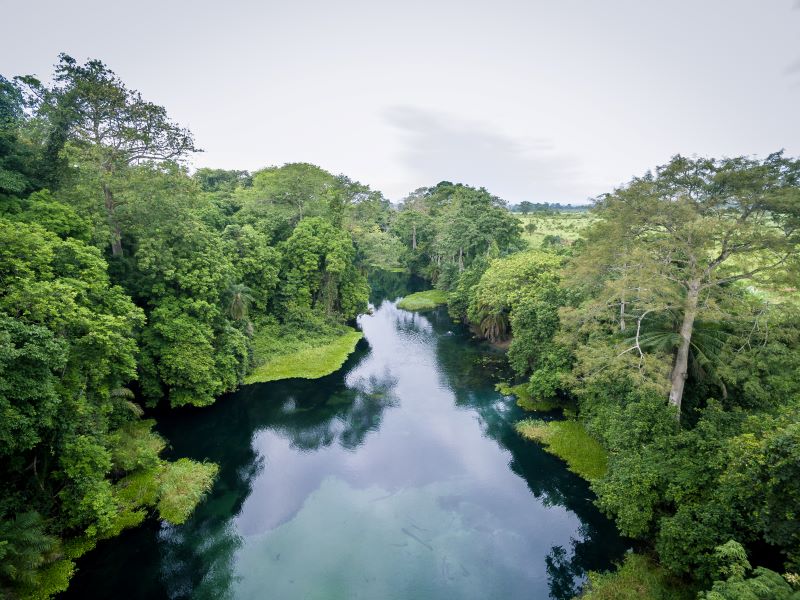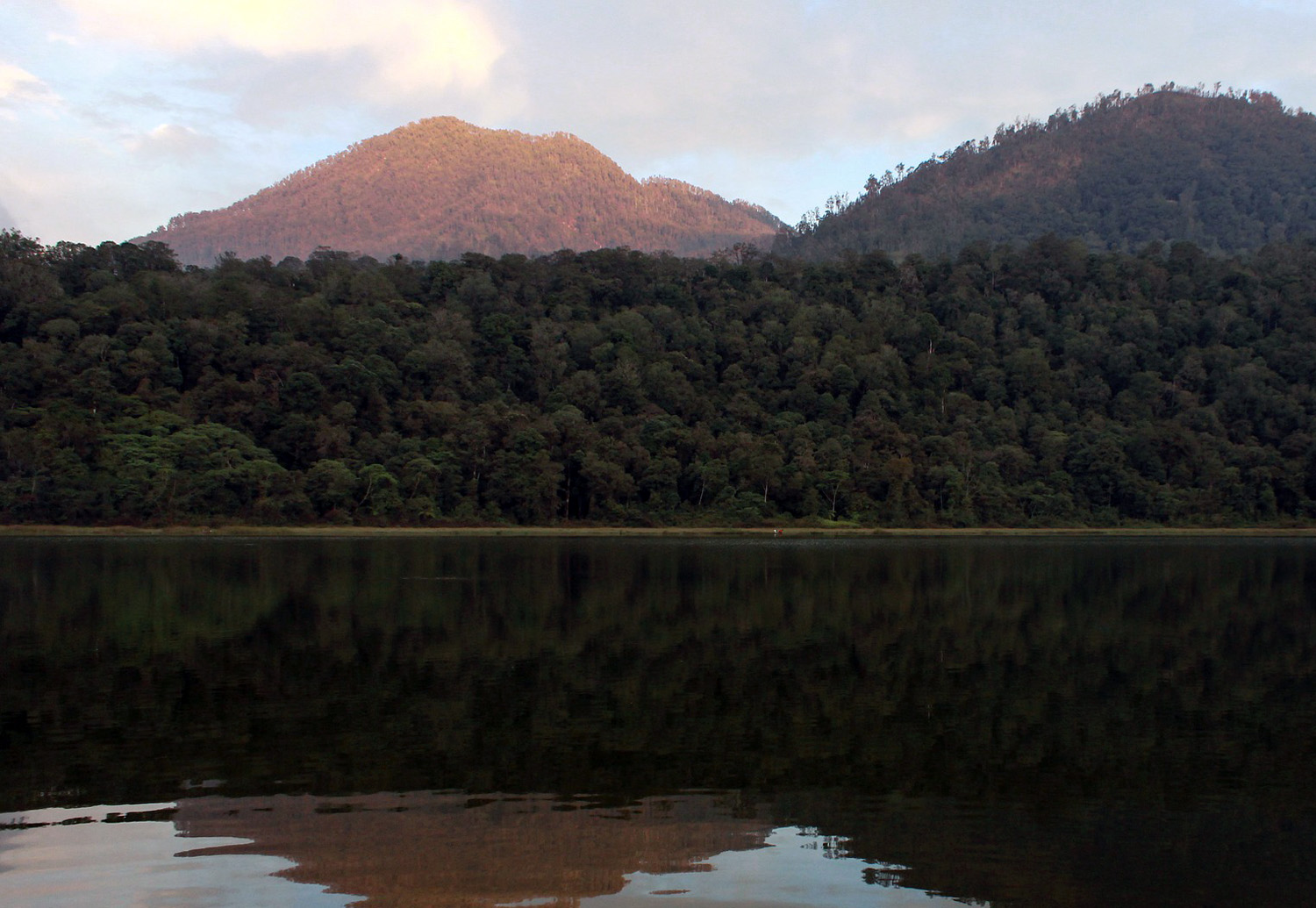If you want a simple explanation of why climate change is a development issue, Juliana Santiago can provide it. The head of the Amazon Fund department at Brazil’s national development bank (BNDES) tells me that Brazil's economy "was dependent on the maintenance of the forest,” and that, with 29m people living in the Amazon – many in poverty – getting rural landowners to “understand that deforestation might be a threat to their business was part of this engagement in protecting the forest and thinking about sustainable development.”
And Brazil knows a thing or two about protecting forests. In a decade, it cut deforestation rates by more than 80% and is now the largest reducer of greenhouse gas emissions.
The Amazon Fund provides financial assistance to combat deforestation, and in a new CGD Podcast, Santiago tells me that Brazil used a raft of policies on land rights, curbing illegal forest clearance and providing alternative sources of income for forest communities. Included in this was the Amazon Fund’s payment-for-performance program, which recognizes that the trees are providing a utility in terms of climate and development services.
“A Maturity Process”
Santiago spoke at the launch of CGD’s new report "Look to the Forests: How Payment for Performance Can Reduce Climate Change" and in the Podcast explains that Brazil’s efforts were aided by a $1bn payment-for-performance partnership with Norway, where money was paid for verified emissions reductions.
“Climate change is beyond a Brazil problem,” says Santiago. “It’s a world problem. So the message and engagement of rich countries is very important.”
“It’s a maturity process. After Norway pledged a donation to the Amazon Fund, it brought, in sequence, a pledge and a donation from the Germany government.”
How can more countries become involved in payment-for-performance agreements to reduce deforestation? Click below to hear what Santiago thinks.
The payment-for-performance model known as REDD+ is an established process, agreed upon under the auspices of the UN. CGD’s new report examines why, despite this apparent accord, more countries are not actively involved in payment-for-performance programs to prevent deforestation. It finds that donor countries treat such payments as aid, and recommends that they instead see the money as a payment for services rendered, without placing conditions on how it is spent.
“This Is Not Aid”
“Don’t fall into the trap of traditional aid,” urged CGD President Nancy Birdsall at a recent event previewing the report at the UN headquarters in New York. “For a start, this is not aid.… We should be paying, especially we in the rich world, should be paying for these services that trees and tropical forest countries provide.”
Santiago agrees and urges more countries to reinforce acceptance of the REDD+ model with tangible commitments.
“The question is, where is the money? We need now the financial engagement, because the framework we have already agreed.”
Watch the video of the whole podcast here.
Si quieres una explicación simple de por qué el cambio climático se encuentra en la agenda de desarrollo, Juliana Santiago te la puede dar. La líder del Fondo para la Amazonía del Banco de Desarrollo de Brasil (BNDES) me comenta que la economía brasileña “era dependiente de la conservación de su bosque” y que, con 29m personas viviendo en la Amazonía – siendo pobres muchos de ellos – “hacer entender a los terratenientes rurales que la deforestación podría ser una amenaza a sus negocios fue parte de este emprendimiento de proteger el bosque y pensar acerca de un desarrollo sostenible del país”.
Y Brasil sabe unas cuantas cosas acerca de cómo proteger sus bosques. En una década, redujo sus tasas de deforestación en más de 80% y actualmente es el mayor reductor de emisiones de gas de efecto invernadero.
El Fondo para la Amazonía ofrece asistencia financiera para combatir la deforestación y, en un nuevo CGD Podcast, Santiago me dice que Brasil utilizó un conjunto de políticas sobre derechos de propiedad para frenar la tala ilegal de árboles y proveer fuentes alternativas de ingreso para comunidades indígenas. Este emprendimiento incluye un programa de pago-por-rendimiento, el cual reconoce que los árboles son útiles en términos de clima y servicios relacionados al desarrollo económico.
“Un proceso de madurez”
Santiago participó en el lanzamiento del nuevo reporte de CGD llamado Look to the Forests: How Payment for Performance Can Reduce Climate Change. En este Podcast, Santiago explica que los esfuerzos de Brasil fueron apoyados por una alianza pago-por-rendimiento de 1 mil millones de dólares con Noruega, donde el dinero fue ofrecido para reducciones verificadas de emisiones de gas de efecto invernadero.
“El cambio climático es un problema que no solo concierne a Brasil,” dice Santiago. “Es un problema mundial. Así que el mensaje y compromiso de los países avanzados es muy importante”.
“Es un proceso de madurez. Después de que Noruega realizó una donación al Fondo para la Amazonía, esto generó que, en consecuencia, el gobierno alemán se una”.
¿Qué se puede hacer para que más países se involucren en acuerdos de pago-por-rendimiento para reducir la deforestación? Haz click debajo para escuchar qué piensa Santiago.
El modelo de pago-por-rendimiento, conocido como REDD+, es un proceso ya establecido, acordado bajo el auspicio de las Naciones Unidas. El nuevo reporte de CGD explica por qué, a pesar de la existencia de este acuerdo, más países no se encuentran activamente involucrados en los programas de pago-por-rendimiento para prevenir la deforestación. Santiago encuentra que los países donadores consideran estos pagos como asistencia y recomienda que sean vistos como pagos por servicios prestados, sin condiciones acerca de cómo se gasta el dinero.
“Esto no es asistencia”
“No caigan en la trampa de la asistencia tradicional,” instó Nancy Birdsall, presidente de CGD, en un evento reciente donde se presentó un avance del reporte en las Naciones Unidas en Nueva York. “Para comenzar, esto no es asistencia… Deberíamos pagar, especialmente aquí en los países avanzados, por estos servicios que los países con árboles y bosques tropicales pueden ofrecer”.
Santiago está de acuerdo y llama a más países a aceptar el modelo REDD+ con compromisos tangibles.
“La pregunta es, ¿dónde está el dinero? Necesitamos ahora el compromiso financiero pues ya hemos acordado el esquema”.
Mire el video completo aquí.
Disclaimer
CGD blog posts reflect the views of the authors, drawing on prior research and experience in their areas of expertise. CGD is a nonpartisan, independent organization and does not take institutional positions.





